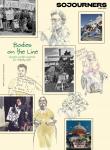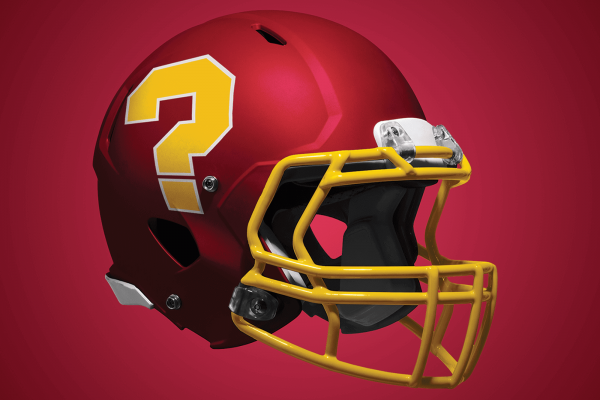WHEN THE WASHINGTON Football Team announced its new name in February, some longtime activists were less than impressed. “The way the franchise and its fans act like the past half-century never happened,” responded Amanda Blackhorse, a member of the Navajo Nation, “like we’re supposed to cheer for something that should have happened decades ago.” For Blackhorse and many others, a symbolic step like a name change—which the team’s leadership was forced to take, “kicking and screaming,” in the face of a campaign that began in the 1960s—“feels hollow” without genuine action to back it up, beginning with acknowledging the damage and making real efforts to repair the harm done to communities.
But getting rid of offensive names, while not a replacement for reparative, structural change, isn’t without significance. And it’s not only about sports franchises—many religious institutions have their own work to do, often involving legacies that go back centuries. Princeton Theological Seminary confronted just such a case earlier this year concerning its chapel named in honor of Samuel Miller, the seminary’s second professor. The Presbyterian theologian presumably taught his students about the Bible and what it means to follow Christ—while using enslaved labor and opposing abolition. In January, as Heath Carter explains (p. 15), Black seminarians at Princeton led a movement to demand that the school remove Miller’s name from the chapel. “We decided early on as a community that we would not worship in the chapel” under the name of someone who “did not believe that Black and white people could live in community” and led the effort to send free Black people back to Africa, Rev. Tamesha Mills, moderator of the Association of Black Seminarians at Princeton, told Sojourners. “There’s no reason why any building, especially our sacred place of worship, should be named after someone who has that theological stance.” A week after a student protest outside the chapel, the seminary’s board of trustees voted unanimously “to disassociate the name of Samuel Miller from the chapel.”
Southern Baptist Theological Seminary in Louisville, Ky., on the other hand, announced in fall 2020 that it would not rename buildings that honor its founders, who enslaved 50 people between them. Seminary president Al Mohler praised the founders’ “theological orthodoxy” and said “we stand with them in theological conviction, period.” Apparently, to Mohler and the seminary leadership, enslaving people isn’t a theological problem. Other Southern Baptists disagreed. Dwight McKissic, pastor of Cornerstone Baptist Church in Texas, decried the “moral inconsistency” of celebrating and honoring “men stealers and child abusers” and said the institution was “in effect upholding their legacy of being theological and practical proponents and defenders of white supremacy and Black inferiority.”
Who we recognize on our buildings, or with statues and monuments—often justified by invoking “legacy” and “tradition”—says less about history than it does about who we are and what our values are now. For churches and religious institutions, these identity questions are theological matters. It’s not just hypocrisy to claim to preach the gospel while honoring those who act in stark contrast to its central tenets. It gives lie to the very heart of our faith.

Got something to say about what you're reading? We value your feedback!







